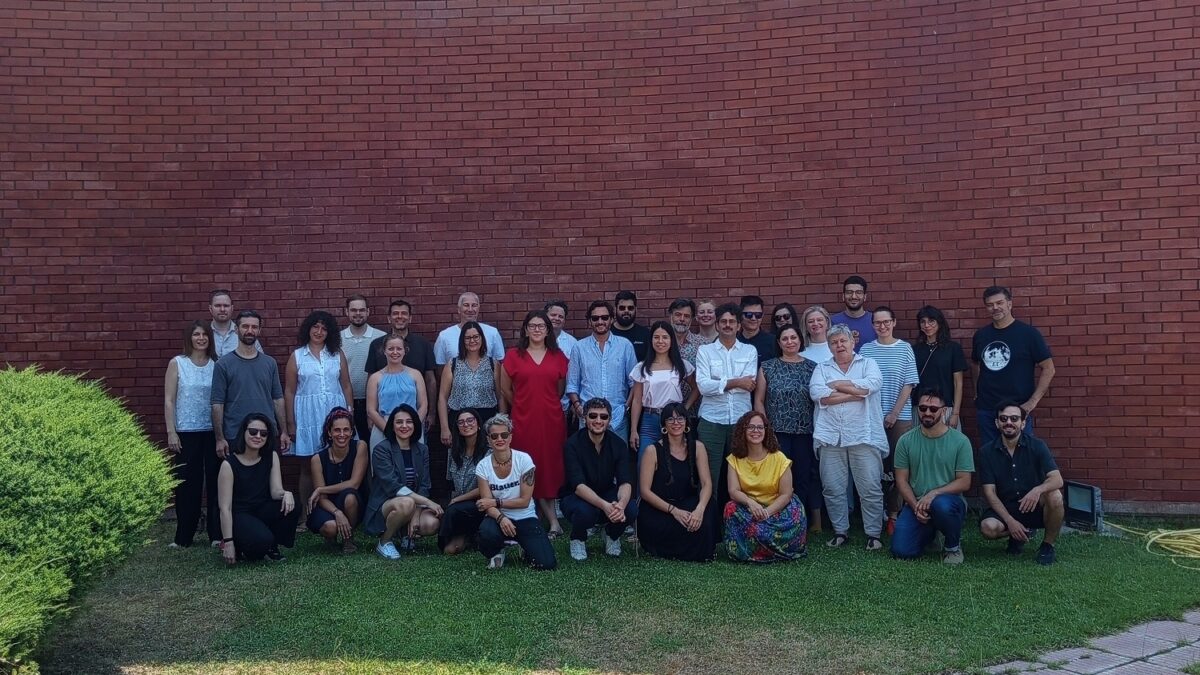
A multi-dimensional consortium of actors from research and innovation, entrepreneurship, and local authorities, coordinates the new European project “Sustainable Public spaces through Inclusive Community Engagement”, abbreviated as “SPICE”.
A total of fifteen organizations from distinguished universities, local government entities, research institutions, and consulting agencies related to design and impact driven solutions, collaborate under the umbrella of “SPICE”, i.e., Centre for Research and Technology Hellas (CERTH), Business & Cultural Development Centre (KEPA), Draxis Research Ventures (DReVen), Codesign Toscana APS (CdT), IRIDRA (IRID), Universitat Autònoma de Barcelona (UAB), Ecole Nationale Supérieure d’Architecture de Nantes (ENSAN), Impact Hub GmbH (IHNet), Association Européenne des Agences de Développement (EURADA), Agencja Rozwoju Regionalnego S.A. (ARRSA), MAKE IT BETTER (miB), ARCTIC FACTORY (AF), City of Thessaloniki (THESS), Rovaseudun Markkinakiinteistöt Oy (RoMa), Município de Cuba (CMC).
On July 16 and 17, 2025, the Kick-off meeting of the project took place at the premises of the Centre for Research and Technology Hellas (CERTH), which is also the project’s lead partner.
Recognizing the importance of establishing a participatory co-creation model for
(re) shaping public spaces in European neighborhoods, the SPICE project aims to:
• Develop a new model of participatory co-creation in (re)shaping neighborhoods,
• Support the green transformation of cities according with NEB principles by testing and validating the new proposed methodology in four (4) demonstration cases (pilots),
• Leverage new technologies to facilitate active engagement and collaboration within local ecosystems,
• Enhance a transdisciplinary and inclusive approach in tackling local societal challenges,
• Provide evidence of the impact and perspectives of this new model of active engagement and co-creation.
Integrating community knowledge and active participation can result in neighborhoods that are not only livable but also framed by empowered citizens to take an active role in shaping their surroundings, especially within the four demo cases – pilots – in Thessaloniki (Greece), Bielsko-Biala (Poland), Cuba (Portugal), and Rovaniemi (Finland).
This inclusive approach can enhance social trust and improve public perception of local governance and democratic processes. The design of public spaces significantly influences social interactions, community activities, and overall public trust in public institutions.
The kick-off meeting among the project partners focused on setting grounds for a successful project implementation, defining roles and responsibilities, planning next steps, while also ensuring everyone understands their contribution and accountability.
Specifically, on Wednesday 16th of July, Dr. Sotiris Diplaris, Senior Researcher by CERTH/ITI, welcomed all project partners on behalf of CERTH, host of this meeting, while Ms. Nefeli Georgakopoulou, CERTH’s Senior Research Associate and SPICE Project Manager gave an overview of the project and shared recommendations that were highlighted by the Policy Officers of the European Commission during an online pre kick-off session. Then, presentations of the entities participating in the consortium and the activities undertaken by each partner followed.
On Thursday 17th of July, the meeting focused on technical issues and on discussions per working group, while the “leaders” of each activity presented their action plans against the set objectives, referred to the corresponding time frame of the planned activities, and summarized key points.
By fostering interdisciplinary synergies, leveraging advanced digital tools, and promoting circular and regenerative construction practices, SPICE project partners envision an inclusive participation through innovative co-design processes for planning public spaces under the principles of the New European Bauhaus and the core EU values for social cohesion.



